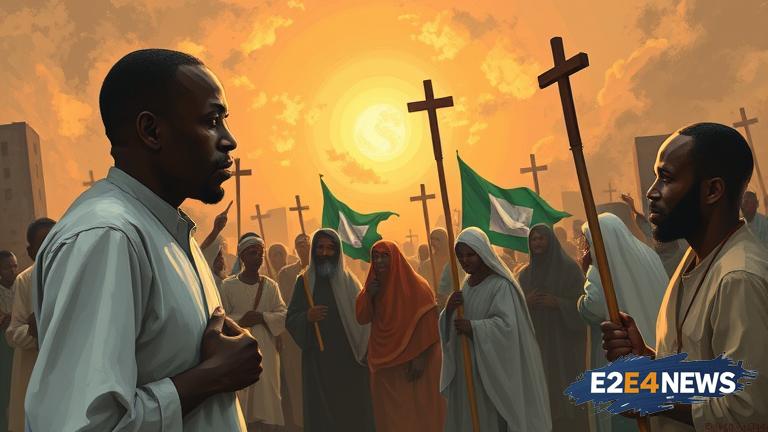The international community is sounding the alarm over the deteriorating state of religious freedom in Nigeria. A recent commission report has shed light on the numerous violations of religious freedom in the country, sparking widespread concern. The report highlights the plight of Christians and Muslims alike, who face persecution, violence, and discrimination at the hands of extremist groups and government authorities. The situation is particularly dire in the northern regions of Nigeria, where Boko Haram and other militant groups have wreaked havoc on communities, destroying churches, mosques, and other places of worship. The commission’s findings also reveal a disturbing trend of government complicity in religious freedom violations, with authorities often turning a blind eye to attacks on minority groups. Furthermore, the report notes that the Nigerian government has failed to adequately protect its citizens, particularly in the face of rising extremism. The consequences of these violations are far-reaching, with many Nigerians forced to flee their homes, seeking refuge in other parts of the country or abroad. The commission’s report also highlights the economic and social impacts of these violations, with communities struggling to recover from the devastating effects of violence and persecution. In response to these findings, human rights groups and religious organizations are calling on the Nigerian government to take immediate action to address these violations and protect the rights of all citizens, regardless of their faith. The international community is also being urged to take a stronger stance on the issue, providing support and resources to help Nigeria address its religious freedom challenges. Despite these challenges, there are also stories of hope and resilience emerging from Nigeria, with many individuals and communities working tirelessly to promote tolerance, understanding, and peaceful coexistence. However, without concerted effort and support from the government and international community, the situation is unlikely to improve, and the future of religious freedom in Nigeria remains uncertain. The commission’s report serves as a stark reminder of the need for urgent action to address these violations and ensure that all Nigerians can practice their faith without fear of persecution or violence. As the situation continues to unfold, it is clear that the international community will be watching closely, waiting to see if the Nigerian government will take the necessary steps to protect the rights of its citizens and promote a culture of tolerance and respect. In the meantime, human rights groups and religious organizations will continue to advocate for the rights of Nigerians, pushing for an end to these egregious violations and a brighter future for all. The road ahead will undoubtedly be challenging, but with persistence and determination, it is possible to create a Nigeria where all citizens can live without fear of persecution, and where religious freedom is truly respected and protected.
Sun. Oct 26th, 2025
